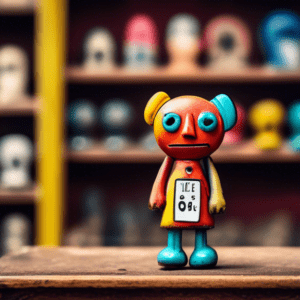Humane, the ambitious startup known for its enigmatic AI Pin, is reportedly exploring a potential sale following a lukewarm reception to its flagship product. The company, which had garnered significant attention and investment for its vision of an AI-powered future, now faces an uncertain path forward.
High Expectations and a Secretive Approach
Founded by former Apple designers Imran Chaudhri and Bethany Bongiorno, Humane positioned itself at the forefront of a new wave of AI innovation. Their flagship product, the AI Pin, was shrouded in secrecy for years, building anticipation with cryptic teasers and promises of a revolutionary user experience. The company raised over $230 million in funding, attracting high-profile investors like OpenAI and Microsoft, signaling strong confidence in their vision.
Humane’s approach was characterized by a distinct air of secrecy, fueling speculation and excitement within the tech community. The AI Pin, designed as a wearable device meant to replace smartphones, was touted as a game-changer. Humane envisioned a future where AI seamlessly integrated into daily life, offering a more intuitive and natural way to interact with technology.
A Tepid Launch and Mixed Reviews
However, the highly anticipated launch of the AI Pin was met with a wave of disappointment. The device, priced at $699 and requiring a $24 monthly subscription, faced criticism for its limited functionality and clunky user interface. Early adopters found the AI assistant underwhelming, often struggling with basic tasks and lacking the promised seamless integration.
Reviews from tech publications were mixed, with some praising the device’s potential while others questioned its practicality and high price point. The AI Pin’s reliance on a projected display, while conceptually interesting, proved to be cumbersome in real-world use. The lack of a traditional screen made even simple tasks like reading messages or navigating menus a frustrating experience.
Challenges in a Competitive Landscape
Humane’s struggles highlight the challenges faced by companies attempting to pioneer new product categories in the rapidly evolving tech landscape. The AI Pin, while ambitious in its vision, faced an uphill battle against established tech giants with vast resources and ecosystems.
The smartphone, despite its limitations, remains the dominant computing platform, offering a level of convenience and functionality that the AI Pin struggled to match. Convincing consumers to abandon their familiar devices for a new, unproven technology at a premium price proved to be a significant hurdle.
Exploring Strategic Options: The Path Forward
Faced with underwhelming sales and an uncertain market response, Humane is reportedly considering its strategic options, including a potential sale. The company’s decision to explore a sale suggests that its initial go-to-market strategy has not yielded the desired results.
While the exact reasons for the AI Pin’s struggles are complex, several factors likely contributed to its underwhelming reception:
Factors Contributing to the AI Pin’s Challenges:
* **High Price Point:** The $699 price tag, coupled with a $24 monthly subscription, positioned the AI Pin as a luxury product in a highly competitive market.
* **Limited Functionality:** The AI Pin’s initial feature set fell short of consumer expectations, lacking many of the functionalities offered by existing smartphones.
* **User Experience Issues:** The device’s reliance on a projected display and voice controls proved to be cumbersome for many users, hindering its practicality.
* **Marketing and Communication:** Humane’s secretive approach, while generating initial buzz, may have backfired by setting unrealistic expectations and failing to clearly communicate the product’s value proposition.
The Future of Humane and the AI Pin
Whether Humane can overcome these challenges as an independent company remains uncertain. A potential sale to a larger tech company with the resources and expertise to refine the product and navigate the market could provide a lifeline for the struggling startup.
Alternatively, Humane may choose to pivot its strategy, focusing on specific niche markets or exploring partnerships that leverage its AI technology in different applications. The company’s expertise in AI, particularly in areas like natural language processing and computer vision, could still hold value in the right context.
The AI Pin’s journey serves as a cautionary tale for tech companies operating in the rapidly evolving world of consumer electronics. Innovation, while essential, must be balanced with a keen understanding of market needs, consumer expectations, and effective execution. While the AI Pin may not have achieved the widespread adoption Humane initially envisioned, its story highlights the ongoing quest to redefine our relationship with technology and the challenges inherent in bringing truly groundbreaking products to market.
